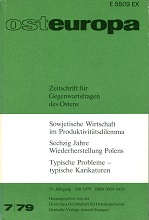

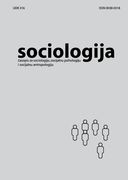
Keywords: History; historiography; Second World War; genocide; war crimes; international law; rehabilitation; Mihailović; Yugoslavia; Serbia
The author analyses the current process pertaining to the legal rehabilitation of Dragoljub “Draža” Mihailović, the leader of the Yugoslav Army in the Fatherland, by first placing the process in relation to European-wide trends of coming to terms with the past. He then moves to a discussion of the Serbian law on rehabilitation, where he points to a number of contradictions and inconsistencies, particularly with regard to the issue of whether war criminals can be rehabilitated. The author then turns to a historical analysis of Mihailović’s wartime activities, with particular emphasis on the issues of treason and war crimes. It is the author’s main argument that Mihailović became embroiled in various forms of collusion with the enemy, although these varied considerably over time. More importantly, however, Mihailović violated a number of legal principles of international humanitarian law, which means that he would have been sentenced today by any court applying the highest international standards of due process. While this would make him ineligible for rehabilitation according to recent political statements and the law of 2011, complications might arise due to the fact that Mihailović’s case will be heard in accordance with a previous law from 2006.
More...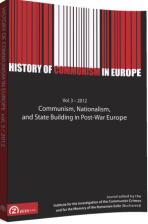
Keywords: Belgrade; Liberation day; Yugoslavism; Socialism
The aim of this paper is to explore the relationships and interactions between socialist ideology and national narratives in Tito's Yugoslavia, focusing on the peculiar case of Belgrade. Taking into account the representative role of the capital city, narratives of identity are analysed from the point of view of the ideology involved and displayed in the celebration of the post-war city's holiday: the 20th of October, anniversary of Belgrade's liberation during the Second World War. Using both archival material and reports published in different newspapers as primary sources, the research studies these celebrative practices as an extremely concentrated expression of the state's ideology but also as occasions of tension and negotiation between different representative meanings: from the attempt of Sovietization of the country – reinforced also by the role of the Red Army in the liberation of the city – to the strengthening of the Yugoslav socialist patriotism after the split between Tito and Stalin and the permanence of Serbian and local identity's narratives.
More...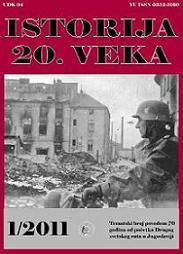
Keywords: World War II; ocupation; Smederevo district
After the April War defeat and capitulation of the Yugoslav Army on 17th April 1941, Kingdom of Yugoslavia was occupied and divided among Axis powers. On of the dozen of the districts that belonged to the German-occupied Serbia, was Smederevo district in northeastern Serbia at Danube river. This article provieds the information on creation of the occupying apparatus, and other aspects of life under the occupation until the communist-led uprisinig on the summer of 1941. It outlines the return of the people to the normal life, ajustment to the new patterns of daily life and reemergence of the Serbian security forces in distirct. Whole period was marked by huge and catastrophic explosion of the captured stocks of ammuntion inside of the Smederevo Fortress on 5th June 1941 which caused hunderds of casulties among the civilians. After this tragical event, a specific Serbian insttitutiuon was created: Comissairiat for the rebuliding of the Smederevo, led by the pre-war right wing politician Dimitrije Ljotić.
More...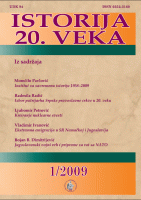
Keywords: contemporary history; institute;
On the 30th January 2009 in the National Assembly of the Republic of Serbia, in the presence of the members of the Board of the Institute, representatives of Ministry of Science, and greater number of guests from scholarly an cultural life, as well as former and current fellows and friends, Institute for Contemporary History has celebrated half a century of its founding. Following are the highlights from the report of the director of the Institute, related to its past and present activity...
More...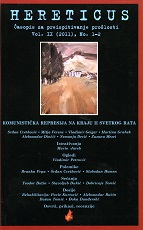
Keywords: Josip Broz Tito; Tito's cult; Show Star
The article examines the development of the cult of Josip Broz Tito after his death. During the last three decades, Tito's image was transformed in different directions, but was always characterized by glamorous characteristics which made him a show star. This had a lasting consequence for researching his biography.
More...Abstract. This article analyzes practices and discourses of various interest groups with regard to the construction of a memorial at the former detention camp of Omarska in Bosnia and Herzegovina. The former camp was run by Bosnian Serb authorities and existed from May to August 1992. It is estimated that around 800 detainees lost their lives at the campsite. Omarska became part of the Republika Srpska, the Serb entity of Bosnia and Herzegovina, following the Dayton Agreement in 1995. Using hitherto unprocessed material, this article discusses the actors involved in the memorial initiative and the problems they face. Using an actor-centered approach, the article shows that even though it appears at first sight to be an ethnonational conflict about memory, other issues are equally important. For example, the role of outside actors is significant – particularly that of the company ArcelorMittal, the world’s biggest steel producer and owner of the property since 2004, and that of The Soul of Europe, an international organization whose initiators ran a project for a memorial at Omarska in 2005. The case study of Omarska thus offers insights into the complex relationship between politics of memory and memory culture in Bosnia and Herzegovina.
More...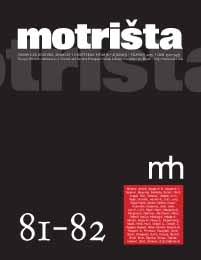
Chronicle of cultural events in Mostar January-March 2015
More...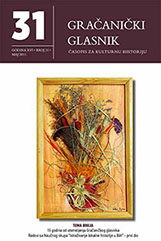
Keywords: Sejdo Đulić; Gračanica; DOMDO bojna; legija; Narodnooslobodilački pokret; Vladimir Perić Valter
Autor se osvrće na Sejdu Đulića, geometra u civilu, zapovjednika Domobranske dobrovoljačke bojne Gračanica i saradnika NOP-a, s posebnim osvrtom na njegov susret s legendarnim komunističkim ilegalcem Vladimirom Perićem Valterom u Gračanici.
More...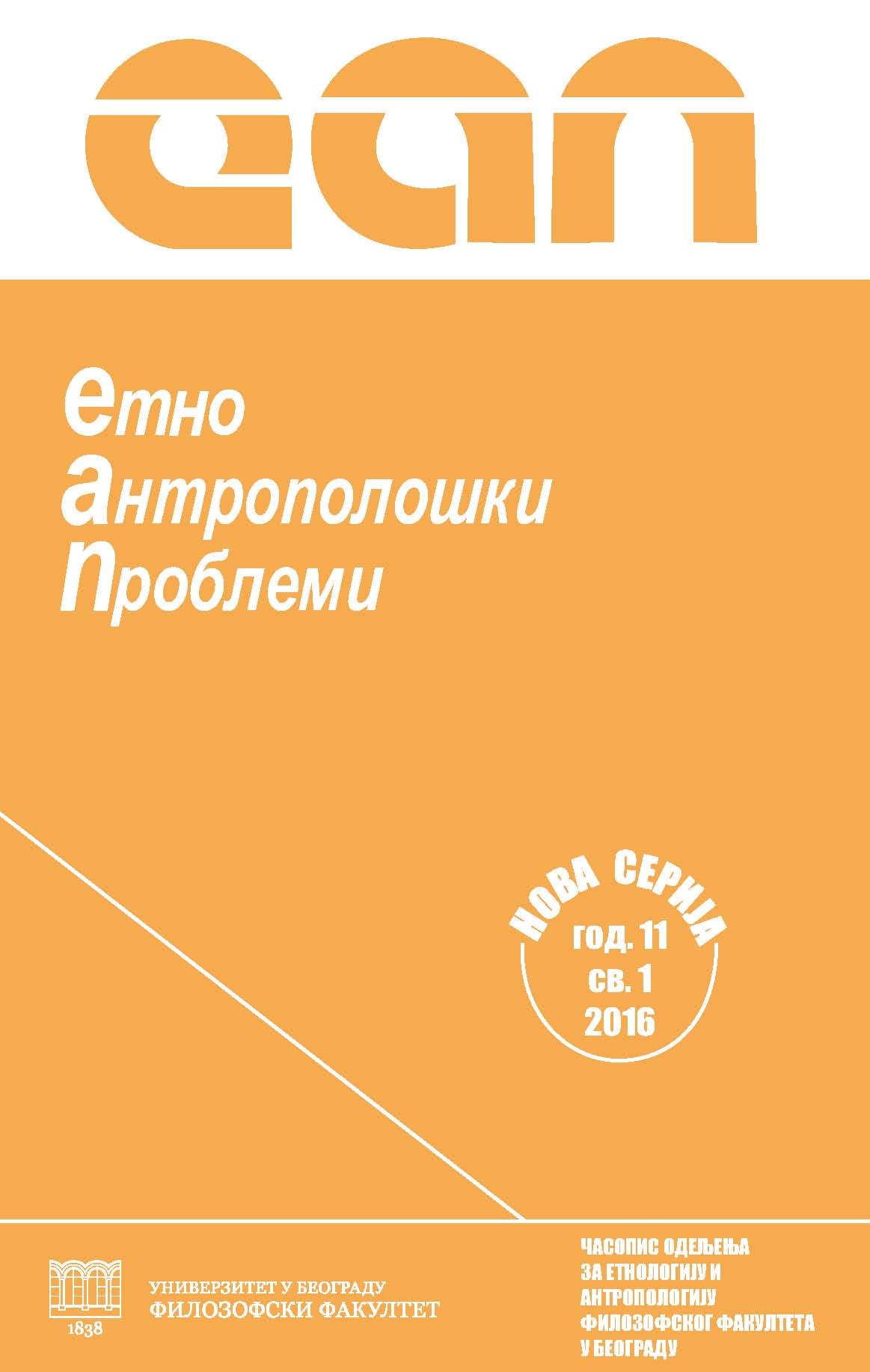
Keywords: TV series “The Sacrificed” (“Otpisani”);television series; popular culture; discourse; Yugoslavia;
Domestic research in the fields of culture, communications and media has not mostly dealt with the ideological and political aspects of popular TV program sand their role in forming dominant cultural patterns in the second half of the twentieth century. Therefore, this paper represents an attempt to refocus the attention of researchers to profounder readings of ideological and discursive meanings of the popular television culture of the Yugoslav era, and the TV series The Sacrificed (Otpisani) has been chosen for such a new and different view and analysis. Although made in the widely established discourse of the Yugoslav community and socialism, with the substantial financial funds and creative force of the creators of the project, it also announces discursive rifts of different orders and great socio-historical cuts. Also, it establishes new cultural patterns in the building of cultural identity and collective memory of several generations raised on the former Yugoslav territory.
More...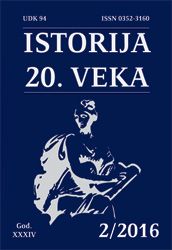
Keywords: Slovenia; 1945; Decision to remove the graveyards and individual graves of „occupiers“ and „people’s enemies“; Communist repression
Immediately after the end of World War II Yugoslav communists took various measures to completely and radically liquidate their enemies. One of these measures was a decision of the Ministry of Internal Affairs of the Democratic Federative Yugoslavia from May 18, 1945 to remove the graveyards and individual graves of fallen „occupying“ soldiers and of „people’s enemies“. This measure was concerning the graves and memorial monuments of German, Italian and Hungarian soldiers, as well as members of Ustasha, Chetnik and Slovenian Home Guard units. Removal of graveyards and individual graves of „occupiers“ and „people’s enemies“ was conducted thoroughly in Slovenia. This can be proven by available documents and witnesses of these events as well as by the present day conditions of graveyards localities. Destruction of military graveyards of „enemies“ was conducted in Yugoslavia not only in the immediate postwar period, but also later. Even during the late 1980s State Security service observed locations of unmarked graves, especially those better known, in order to identify all those who visited these locations where during the war and immediately after „enemy” soldiers and civilians were executed and buried. After the World War II, graves and graveyard of killed partisans as well as graves and graveyards of the „victims of fascist terror“ were protected according to the law, taken care of and maintained. Graves and graveyards of „enemy” soldiers and graves of those who „collaborated with the occupying powers“ were outside the law. The situation remained unchanged until the dissolution of the Socialist Federativ Republic of Yugoslavia.
More...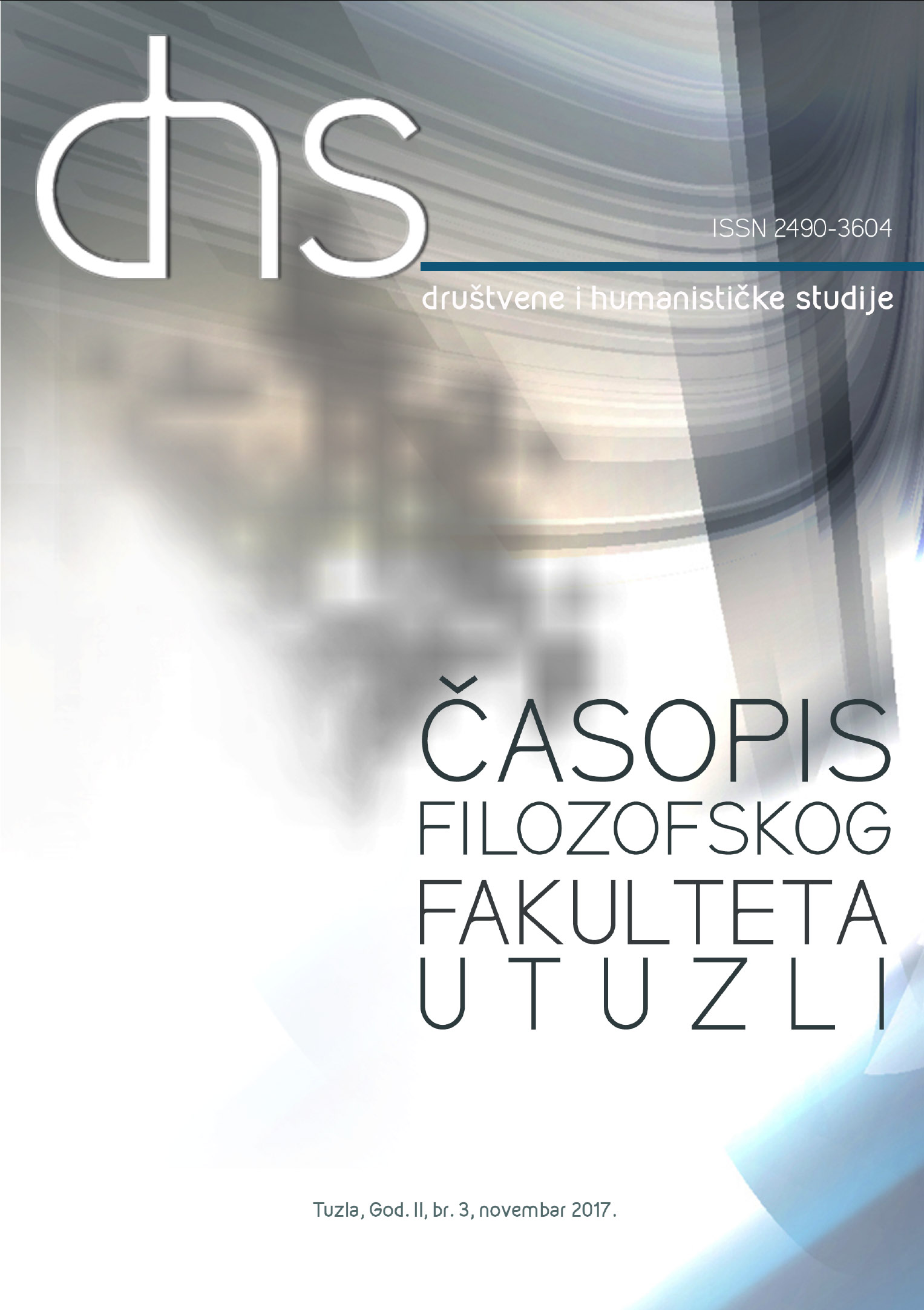
Keywords: Bleiburg; Yugoslav army; Ustasha; partisans; communist Yugoslavia; the Independent State of Croatia; Gračanica; the victimology;
The term “Bleiburg tragedy” mostly refers to the forces of Independent State of Croatia (NDH) andcivilians imprisoned in Bleiburg and Slovenia and the tribulations they experienced when retreatingbefore the forces of the Yugoslav army in the finale of the war and immediately after it. Despite being in the focus of the historical science lately (especially in Croatia and Slovenia), this topic is still controversial and disputed in the entire territory of the former Yugoslavia. As is well known, the new communist government had its own vision of the Second World War and thus did not allow this topic to be addressed. In fact, all victims had been forgotten from 1945 to 1990 – the Catholics, Muslims, Serbs, and Slovenes. These topics started to be considered only after the fall of communism, the breakup of the socialist Yugoslavia and the emergence of new countries in this territory. Moreover, the process of revising the past began, including the issue of the victims of the communist regime.In view of the fact that the Bleiburg tragedy largely remained outside of the focus of history in Bosniaand Herzegovina, referring to the results of a local study, the author paid a special attention to the culture of memory and specific perception of the Bleiburg tragedy in the folk memory of the Bosniaks in the region of Gračanica. He also addressed the way this problem had been treated in the Croatian historiography, commemorative gatherings, and political narrative, especially when it comes to theBosniaks who were murdered in Bleiburg as the Muslim Croats. According to the folk memory of theBosniaks, they were those who, as soldiers, fled another failed and essentially foreign country in 1945. While reminding about different perceptions about the delicate topic of Bleiburg in certain classes of the Bosniak society, the author pointed out the fact that the Bleiburg tragedy has not been the focus of interest of the historical science in Bosnia and Herzegovina and he left open the question of the content of commemorations and paying tributes to the Bosniak victims at the Bleiburg field.
More...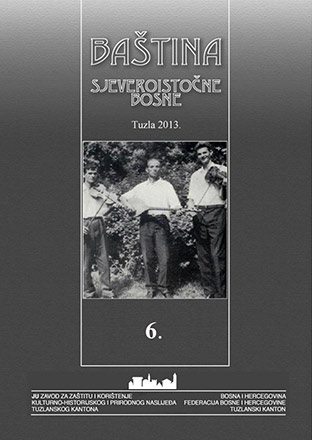
U drugoj polovini XIX stoljeća u svjetskim političkim kretanjima desili su se krupni historijski događaji. Novo nastale evropske nacionalne države (Njemačka i Italija, kao i Austro-Ugarska monarhija) tražile su mogućnost promjene političke karte Evrope i svijeta tj. podjelu kolonija sa velikim silama (Engleska, Francuska i Rusija), koje su taj posao ranije obavile. Interesi velikih sila organizovanih u imperijalističke blokove („Centralne sile“ (1882.), i „Trojni sporazum“ ili „Antanta“(1907.)) najviše su bili usmjereni na prostore Osmanskog carstva koje se nalazilo u teškoj društveno-ekonomskoj, socijalnoj i političkoj situaciji i u tadašnjoj diplomatskoj terminologiji je nazivano bolesnikom na Bosforu.
More...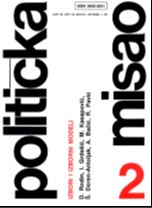
Keywords: political arenas shaping; political systems; transformation;
The author’s starting point is the thesis that policy analysis can be successfully used in the context of political systems undergoing transformation and not only in politically stable systems. Such an approach requires a contextual redefinition of some policy categories and approaches, and in the first place a redefinition of the policy arena and of those who take part in it. The model of the policy arena includes three specific political spaces: the formal, the informal, and the space of the transition of the informal into the formal one. This paper studies the policy arena through the example of the Slovene movement for peace and for the legalization of the right to conscientious objection.
More...Keywords: international humanitarian law; requirements for demage;
In this chapter, our intention is to summarize the structure of the work of lawyer Mr Novović. The work '' INDIVIDUAL REQUIREMENTS FOR THE COMPENSATION OF HARMONY IN HUMANITARIAN LAW '', in addition to the foreword to the reviews, contains the following topics:1) Introduction to the problem of humanitarian law;2) Court dispute over the bombing of the bridge in Varvarin;3) The position of the problem within the framework of humanitarian law - the consideration of issues related to the violation of humanitarian rights, which are relevant for the achievement of civilian compensation;4) Violation of the individual primary right of victims;5) Individual protection securitization law - securitization requirements. (in this chapter, the author has dealt with over 20 problems of humanitarian law after the Second World War to date);6) Law and protection law (this issue is widely addressed within the National Courts, Great Britain, Italy, Germany, Greece, Japan, America, and other countries);7) Forced laborers in Germany (deutsche, zwangs arbaiten);8) Ex gratia and solatio-compression (this issue is discussed by the author as a paradigm in the Netherlands and Israel, and analyzes the Hague Agreement, as well as the protocol of the Geneva Convention);9) Solidarity - Allegiance to the Allies;10) The author gives a special concluding remark, with annexes of the list of used literature.
More...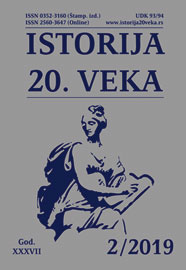
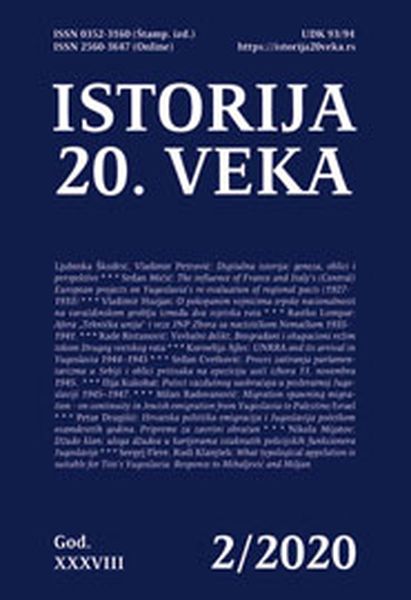
Keywords: Scientific biography; historiography; Aleksandar Ranković;
Book by Bojan Dimitrijevic Rankovic - the second man represents the first complete scientific biography of Aleksandar Ranković at home historiography. This work combines Alexander's political, social, military and intelligence career Ranković with his life biography, ideological development and legacy, cultural influences and the heritage of his personality and her role. Through the prism of the life and career of Aleksandar Ranković, the author explores historical and the social processes that created the time that is shaped such a person and his historical role, while determining the path to be taken it will move and the impact it will leave after disappears from the historical stage.
More...Keywords: monuments; memorials; publications; books; tourist guides; sticker album; People’s Liberation War in Yugoslavia
Publications about monuments to fighters and victims of the Second World War in Yugoslavia began to appear in the late 1950s. They were dedicated to one or more monuments or memorial complexes. Over time, in tourist guides, among other sites, monuments and memorials began to be presented as a significant place worth a visit. During the second half of the 1970s, printing of special tourist guides dedicated only to monuments and memorial complexes started. Because of the popularity of monuments, a sticker album was also printed. The intention behind printing such publications was to inform citizens about monuments, but there was also an ideological side to it. Through books about monuments, the state and the Communist party wanted to emphasize again Yugoslav war efforts and the sacrifice that was made during the war. They used it as a propaganda tool in youth education, foreign diplomacy and overall state propaganda about the role of Yugoslav partisans, under the leadership of the Communist party, in the victory against fascism.
More...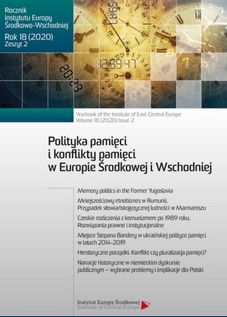
Keywords: memory politics; former Yugoslavia; commemoration; Second World War; Wars of Yugoslav Dissolution;
This article provides an overview of some of the most prevalent topics in post-Yugoslav memory politics as well as on some of the scholars working on these issues, focusing on the commemorative practices of the Second World War and the wars of the 1990s. Thirty years after the Socialist Federal Republic of Yugoslavia’s disintegration, the discourse of post-war memory politics continues to dominate nearly all of the successor states, even though two of them have seemingly left the past behind to join the European Union. While the wars of the 1990s created an entirely new memory scape in the region, they also radically transformed the way in which each country commemorated the Second World War. Although the article examines in-depth the collective remembrance of sites of memory, such as Jasenovac, Bleiburg, and Knin, trends across the broader region are also addressed. The work of young scholars, as well as experienced researchers, who have introduced innovative approaches in memory studies in the former Yugoslavia, is highlighted to show how new studies focus on the cultural reproduction of dominant narratives in addition to top-down political discourse.
More...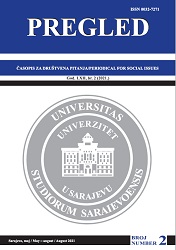
Keywords: 1984; Sarajevo initiative; Yugoslav crisis; 1980s; Association of Yugoslav Brigadistas; death of Josip Broz Tito; book review;
Review of: Olga Manojlović Pintar, Poslednja bitka: Španski borci i jugoslovenska kriza osamdesetih, Beograd: Institut za noviju istoriju Srbije, 2019, 276.
More...